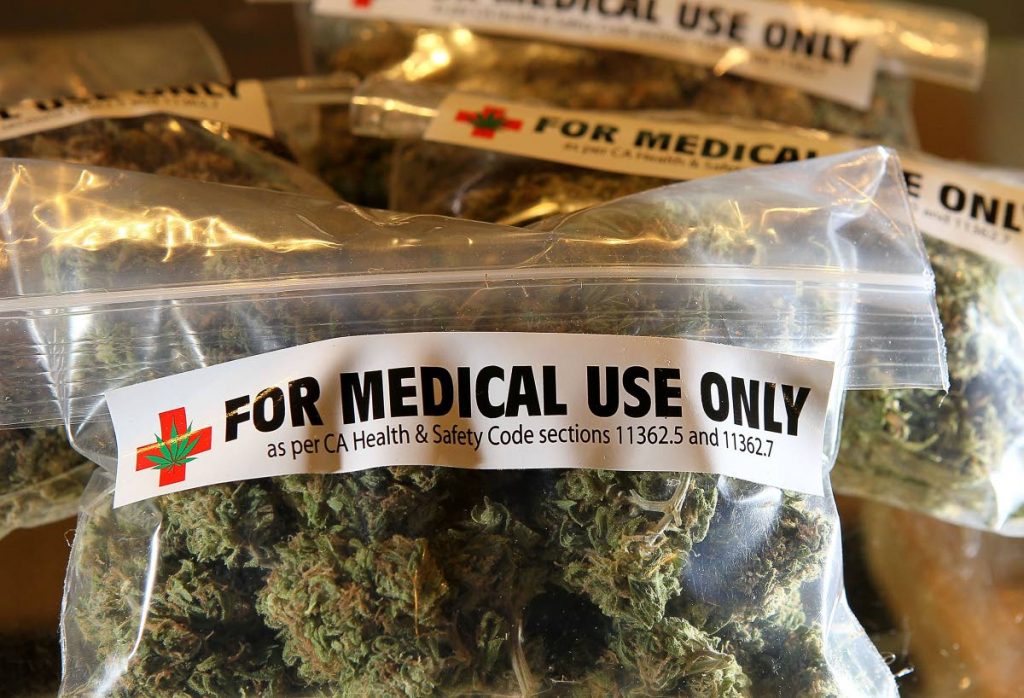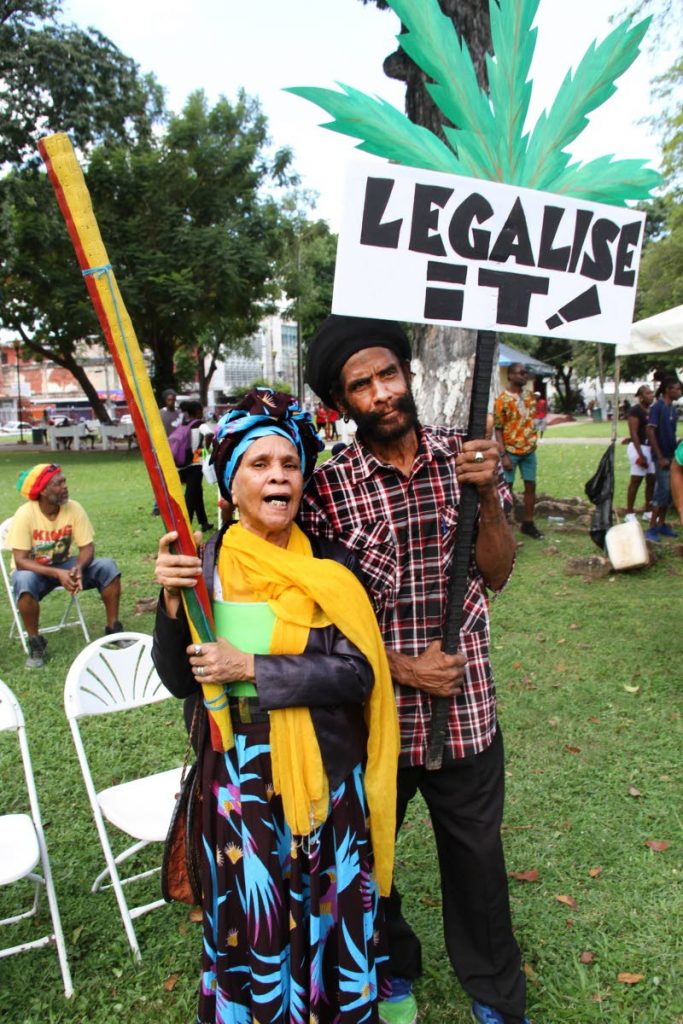Ganja business

Attorney Israel Khan SC will support the Government “100 per cent” in their efforts to decriminalise the use of medical marijuana and hopes that in the future the law would allow for recreational use.
Khan made the statement in response to the Prime Minister’s announcement on Friday that the process of decriminalising marijuana for medicinal purposes would begin early in 2019 and was expected to be completed by mid-year. He also said he expected to have public consultations early in the new year.
Khan explained the possession of marijuana only became a criminal offence in TT in 1962 as it was previously imported and used by East Indians for religious purposes. “Before that it was not illegal to smoke marijuana. And if you wanted more than five ounces you had to go to the warden’s office and get a permit to buy from the shop.”
He said Government needed to control marijuana as was being done in Canada and other countries. “It’s just a matter of time before they decriminalise marijuana but they must go about it very carefully so I support the Government... Marijuana does not lead to any violence. What leads to violence is people who trafficking in marijuana and guarding their turf and the right to distribute.”

Khan said right now it was a criminal offence to possess marijuana unless a person could show they were certified to use it by a doctor, or had a prescription to purchase it for medical use. He said decriminalising it would mean a person could grow a specified amount of plants, possess a certain amount, and use it recreationally without a prescription, but not sell it.
He said with legalisation individuals still would not be able to grow vast amounts or sell, would not be able to smoke in a public place, and there would be a certain level in the blood stream that would be legal for driving, as it is with alcohol.
“Just as how liquor is controlled here. You can’t go and make alcohol. That’s babash and they will charge you. You allow companies to grow marijuana, package it, and sell it like cigarettes. That’s what we’re heading for.” Marijuana activist Nazma Muller noted there were currently provisions for the use of medical marijuana and believed what was needed now was proper regulations for the medical use or the decriminalisation of its recreational use.
Muller noted that in 2000, then PM Basdeo Panday and Ramesh Lawrence Maharaj piloted an amendment to the Dangerous Drugs Act to allow the medical use of marijuana. They were successful and page 12 stated that the minister of health was allowed to “issue licences for the cultivation, gathering or production, at a stated place, of opium poppy, marijuana, or coca plant.” The minister could also issue licences for the import, export, diversion, sale, manufacture, production or distribution, at a stated place, of any dangerous drug.
“When they piloted the law and it was assented to by the President, regulations were supposed to have been written that would guide how it would be dispensed, who could get it, the amount, the dosage, but that was not done. However, between 2003 and 2015, quite a few licences, about 67, were given out to pharmacies, the Forensic Science Centre, and UNDP to bring in ganja.” She said with Government’s new thrust to revisit the law, the Caribbean Collective for Justice, of which she was the head, was concerned whether people would be allowed to supply themselves by growing it. The organisation was concerned that only pharmacies and other medical organisations would be given licences to import the cannabis oils and other products.
“We are happy that the process is finally going to begin but it is far too convoluted and obstructionist. We hope, at the end of it, that people are not left in a worse position by what the law does in that they cannot get their supply or they now have to pay more to private sector enterprises that are given sole licences and big business are allowed to control the supply.”
Muller said thousands of people lost their jobs this year and growing marijuana would be a good way for them to make a living and help diversify the economy. In addition, she said the illegal marijuana being found by the police and on the streets of TT was imported from Colombia and Venezuela and bought with US dollars, further contributing to the foreign exchange crisis. “The longer the Government takes to allow local farmers to grow their own weed and save the foreign exchange, the longer the economy is going to be in crisis.”
She also noted Dr Rowley said there would be public consultations, but the only people who needed to be consulted were scientists, chemists, and doctors to determine the regulations that should be implemented. They should include how the marijuana would be produced, the concentrations of THC (tetrahydrocannabinol), setting up testing labs to determine if the materials produced were healthy, and other issues.
Speaking of the Dangerous Drugs Act, former health minister Dr Fuad Khan said he was approached for licences during his term but he did not issue any because “the world wasn’t going that way.”
However, he said any health minister could issue a licence for medicinal use only. “A minister of health can sign off on certain aspects of THC. Marijuana has cannabinoids with a certain amount of THC. The ones with lower concentrations of THC are used for medical purposes, not the overt marijuana.”
He said in addition to medical practitioners and facilities, individuals could also be granted licences. For example, he said a person with cancer could apply for a licence but the ministry would first have to determine the concentration of THC in the person’s supply through the government’s lab.
When asked how he felt about Rowley’s announcement to begin the process of changing laws to decriminalise medical marijuana, he said, “At least he has come around. It’s good to see the Prime Minister coming down to reality and understanding that it could start at medicinal uses and possibly very small recreational use.”
He recalled that Rowley did not “buy into” his suggestion to decriminalise the drug when he brought the matter up in Parliament during his contribution to the 2018 Appropriation Bill. He said young men were being held indefinitely for the possession of a joint or very small amounts of marijuana because they could not afford bail. He said it also limited their opportunities because they had a criminal record. “If a joint is found in a house, the whole household goes down. That is the ludicrousness of the whole process of small amounts.”

Comments
"Ganja business"